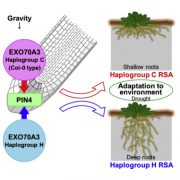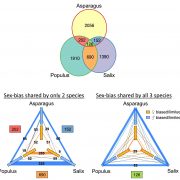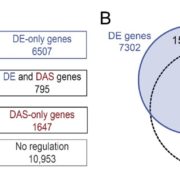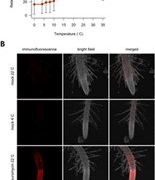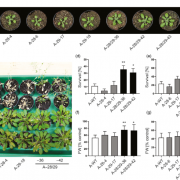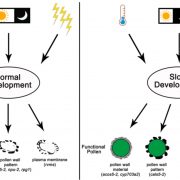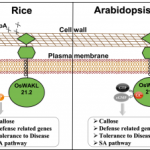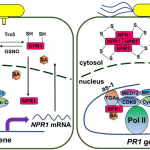The negative effect of a vertically transmitted fungal endophyte on seed longevity is stronger than that of ozone transgenerational effect ($) (Environ. Exp. Bot.)
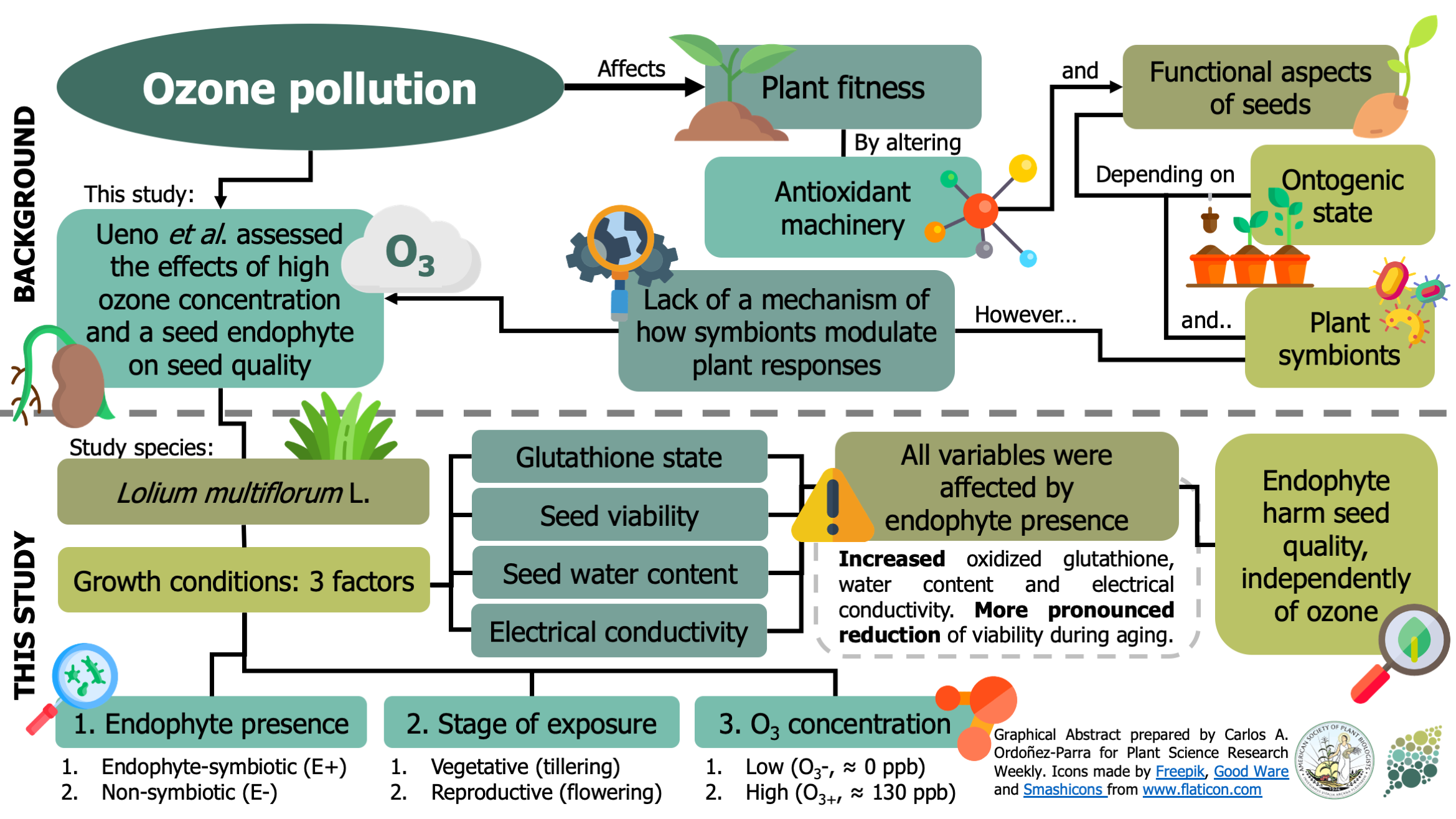 Global environmental change brings new challenges to plants at different levels, including seed development and persistence. For example, the increasing ground-levels of ozone (O3) can affect seed viability, as a result of changes in the mother plant antioxidant machinery. These responses might depend on the ontogenic state of the plants and the interaction with symbiont organisms. In Poöideae grasses, the Epichloë fungal endophytes are transmitted between mother plants and developing seeds, negatively affecting the longevity of the latter. However, the mechanism behind this effect is still missing. Here, Ueno et al. analyzed the effects of ozone and E. occultans on the seed physiology of Lolium multiflorum. To achieve this, the authors harvested the seeds of plants grown both free and associated with E. occultans and exposed to high O3 concentrations in either their tillering or flowering phase. They found that neither the O3 treatment nor the exposure stage affected seed quality significantly. However, the presence of E. occultans hampered the longevity L. multiflorum seeds by altering their oxidative state and increasing their water contents. As a result, the authors conclude that –even if O3 does not directly affect seeds– E. occultans will lead plants to produce seeds more susceptible to O3 pollution and potentially less persistent in the soil. (Summary by Carlos A. Ordóñez-Parra @caordonezparra) Environ. Exp. Bot. 10.1016/j.envexpbot.2020.104037
Global environmental change brings new challenges to plants at different levels, including seed development and persistence. For example, the increasing ground-levels of ozone (O3) can affect seed viability, as a result of changes in the mother plant antioxidant machinery. These responses might depend on the ontogenic state of the plants and the interaction with symbiont organisms. In Poöideae grasses, the Epichloë fungal endophytes are transmitted between mother plants and developing seeds, negatively affecting the longevity of the latter. However, the mechanism behind this effect is still missing. Here, Ueno et al. analyzed the effects of ozone and E. occultans on the seed physiology of Lolium multiflorum. To achieve this, the authors harvested the seeds of plants grown both free and associated with E. occultans and exposed to high O3 concentrations in either their tillering or flowering phase. They found that neither the O3 treatment nor the exposure stage affected seed quality significantly. However, the presence of E. occultans hampered the longevity L. multiflorum seeds by altering their oxidative state and increasing their water contents. As a result, the authors conclude that –even if O3 does not directly affect seeds– E. occultans will lead plants to produce seeds more susceptible to O3 pollution and potentially less persistent in the soil. (Summary by Carlos A. Ordóñez-Parra @caordonezparra) Environ. Exp. Bot. 10.1016/j.envexpbot.2020.104037


